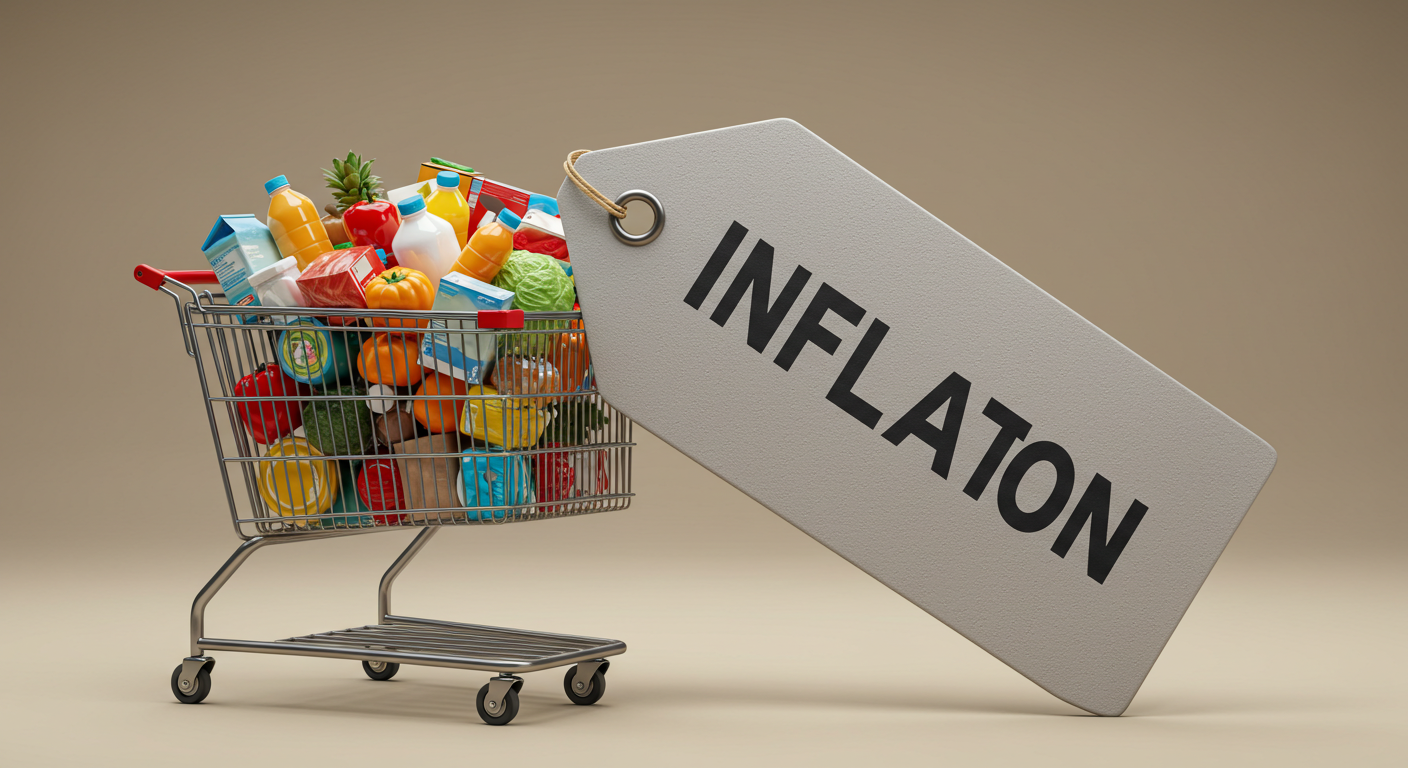
Have you noticed your grocery bill climbing even when you buy the same items? In Singapore, basics like rice, vegetables, and cooking oil keep getting more expensive.
For families and young professionals, this means tighter budgets and more stress, especially when payday feels far away.
So how can you cope when groceries take up more of your income? In this article, we’ll share simple tips to manage rising costs and explore if a payday loan can be a safe short-term option when used wisely.
The Rising Cost of Living and Groceries in Singapore
Singapore is known as one of the most expensive cities to live in, and rising food prices are making it even tougher. Inflation, supply issues, and higher import costs are pushing up the price of daily essentials. Core inflation recently climbed to about 3.1 percent year on year, showing how everyday spending is getting heavier (Fiscus Finance, 2025).
A survey found that 75 percent of Singaporeans worry about food costs. Many are cutting back on eating out, choosing cheaper options, or giving up non-essentials just to manage their budget (AsiaOne, 2024). Rising grocery bills are not just about money; they are forcing real lifestyle changes for families.
How Households Typically Manage Grocery Expenses
Budget Adjustments and Smart Shopping
Many readers already stretch their dollars with successful habits like buying sale items, using loyalty programs, and buying in bulk when it makes sense.
Here are some common strategies and their impact:
| Strategy | Example Action | Effect on Budget |
| Use loyalty programs | NTUC FairPrice membership | Save a few dollars per trip |
| Buy in bulk during promotions | Rice, canned food, toiletries | Reduce long-term costs |
| Plan meals ahead | Weekly menu planning | Avoid waste, stick to the budget |
| Switch to house brands | Store-label bread, milk, and cleaning items | Cut spending on basics |
Relying on Savings or Emergency Funds
Having even a small buffer can help, yet not all households have that luxury. Unexpected price hikes can leave people scrambling.
Credit Options in Tight Months
When money runs short, common choices include bank overdrafts, credit cards, borrowing from relatives, and short-term loans like payday loans. Each comes with trade-offs.
| Credit Option | Speed of Access | Typical Cost/Interest | Best Used For |
| Credit Card | Immediate | 26% per year if unpaid | Flexible purchases if repaid quickly |
| Bank Overdraft | Immediate | Varies by bank, often higher fees | Short coverage for known income gaps |
| Borrow from Family | Depends | Usually interest-free | Only if repayment will not strain ties |
| Payday Loan | Fast (same day) | Up to 4% monthly, regulated by law | Urgent essentials, short-term use only |
Understanding Payday Loans in Singapore

When a Payday Loan May Be Considered
A payday loan is a short-term loan, often taken to bridge a brief gap between paydays. It can be helpful when you need cash quickly for essentials like groceries or urgent household needs (Loan Advisor, 2025).
Benefits and Risks of Payday Loans
Benefits: These loans are often fast, small, and do not require collateral
Risks: They may carry higher costs if used often or without a clear repayment plan.
Licensed Lenders vs. Unlicensed Lenders
As of 1 October 2015, the Moneylenders Act caps the maximum interest rate licensed moneylenders can charge at 4% per month, whether the loan is secured or unsecured. This limit applies regardless of the borrower’s income (Ministry of Law, 2025).
Additionally, late interest is also capped at 4% per month, and there are strict limits on administrative and late repayment fees—specifically, up to 10% of the loan principal and S$60 per month, respectively.
Smart Ways to Cope with Grocery Price Spikes Without Financial Stress
Planning Ahead for Peak Seasons
During festive periods or school holidays, grocery bills can jump. Planning meals and stocking up early helps reduce stress.
Mixing Lifestyle Choices with Financial Planning
Cooking more at home, choosing seasonal produce, and prioritizing wellness can cut costs without sacrificing self-care.
Using Short-Term Loans Responsibly as a Bridge
In a pinch, a payday loan can help bridge a short-term financial gap—if you have a clear repayment plan. Readers seeking this option can find practical tips and resource links on the Cashmart Singapore website about responsible borrowing and loan budgeting.
Case Study: A Household Navigating Grocery Cost Spikes
Consider a young family of four dealing with a nearly 20 percent jump in monthly grocery bills around festive periods.
They tighten their budget, cut dining out, and dip into savings. When that runs low, they borrow a small payday loan from a licensed lender they checked on the Ministry of Law registry.
They schedule repayment right after salary arrives and are back on track without borrowing again. This case shows how short-term loans can help, but only when used carefully.
What Singaporean Families Need to Know Now
Rising grocery prices add stress: Basics like rice, oil, and vegetables now cost more, making it harder to stretch each paycheck.
Smart planning saves money: Meal planning, bulk buying, and comparing prices can ease the pressure on your budget.
Payday loans can help in tight months: They may provide quick relief if used carefully. Always borrow only what you need, pick a licensed lender, and plan repayment.
Learn safe borrowing: Trusted sources like Cashmart Singapore offer guidance on how to borrow wisely and compare loan options.
Your Next Step to Smarter Borrowing
There is no simple fix when grocery prices keep rising. Careful planning, budgeting, and small lifestyle changes can make a big difference. A payday loan might provide short-term help, but only if you borrow wisely and know the costs.
If you want to stay in control and understand safe borrowing better, check out the insights shared on Cashmart Singapore’s website. You might discover tips and options that give you more confidence the next time your budget feels tight.
